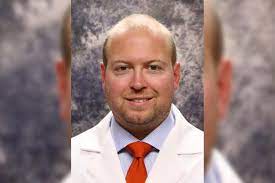Deciding to pursue a career in medicine is a significant commitment that requires careful consideration and planning. One of the crucial steps in this journey is selecting the right medical school that aligns with your career goals and personal growth. Dr. Philip Sobash , a medical professional, provides valuable tips and advice to help you make an informed decision.
Consider Class Size for Optimal Learning Experience
When evaluating different medical schools, class size should be a key factor to consider. Both excessively large and extremely small class sizes can have a negative impact on students’ academic performance and overall learning experience. The ideal class size ranges from 20 to 30 students per class.
A smaller class size allows instructors to provide more individual attention and support to each student. It fosters a collaborative learning environment where students can engage with their peers and participate actively in discussions. On the other hand, a class that is too large may limit personal interactions and hinder effective communication between students and faculty members. Finding a balance is essential to ensure a conducive learning environment.
Location Matters for a Balanced Life
The location of the medical school plays a significant role in your overall experience during your studies. As a medical student, you will spend a considerable amount of time within the school premises, so it’s important to have convenient access to essential amenities and resources.
Opting for a medical school located in proximity to grocery stores, restaurants, parks, and other facilities can simplify your daily life, particularly if you choose to live off-campus without access to transportation options. Having access to these amenities can contribute to a balanced and fulfilling life outside of academics, promoting overall well-being and reducing stress.
Take Advantage of Pre-Med Programs
Many universities offer pre-med programs designed to prepare students for medical school while they are still in college. These programs are beneficial for students who have already made a firm decision to pursue a career in medicine, as well as those who are still exploring their options.
By enrolling in a pre-med program, students gain access to specialized coursework that is tailored to the requirements of medical school. This includes subjects like biology, chemistry, and physics, which delve into topics such as anatomy and physiology. Additionally, pre-med programs often provide guidance on writing personal statements for medical school applications. These statements allow applicants to articulate their motivations for pursuing a medical degree and provide insights into their strategies for interviewing potential classmates during orientation week.
In conclusion, choosing the right medical school is a crucial step in your journey to becoming a successful physician. Considering factors such as class size and location can greatly impact your learning experience and overall well-being. Additionally, taking advantage of pre-med programs can provide valuable preparation for the challenges that lie ahead. By carefully evaluating your options and seeking guidance from professionals like Dr. Philip Sobash, you can make an informed decision that sets you on the path to a fulfilling career in medicine.
Note: The information provided in this article is for educational purposes only and should not be substituted for professional advice. It is important to research and consult with medical school advisors to gather personalized recommendations and guidance.
